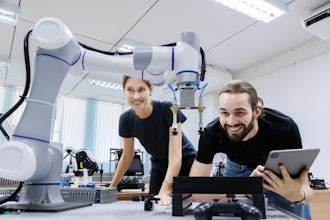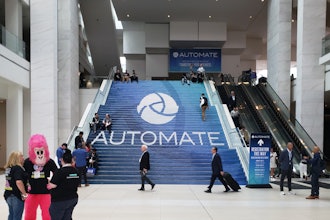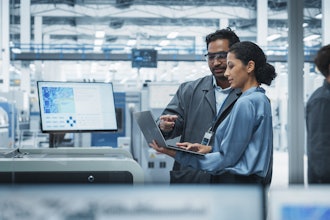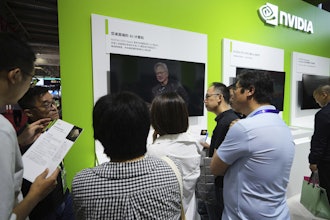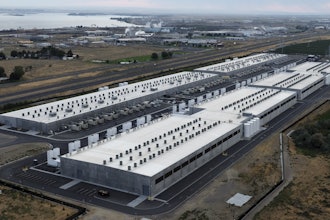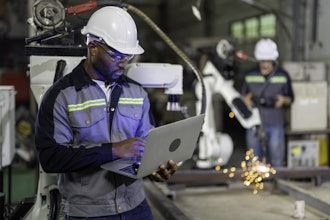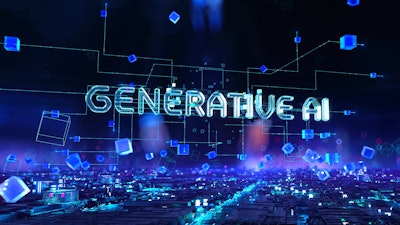
Generative AI is everywhere and it is predicted that the technology will boost industry revenues by enabling faster, more precise innovation, as well as automating processes. ABI Research predicts that generative AI will unlock $10.5 billion in new revenues for the manufacturing industry by 2033.
“Generative AI has growth that will derive from functionality and use cases across market verticals. The deployment of generative AI will come in three waves as the technology matures, with manufacturing seeing the largest revenue growth during the second and third waves. During the second and third waves of adoption, generative AI will be deployed into four domains of manufacturing: design, engineering, production, and operations,” says James Iversen, Manufacturing and Industrial Industry Analyst at ABI Research.
Manufacturers are now actively developing generative AI strategies and roadmaps, assessing their infrastructure readiness, and working with partners to deploy new capabilities. Here are some of the top use cases that illustrate the transformative potential of generative AI in manufacturing:
- Streamlining Product Innovation and Design. Generative AI can accelerate teams’ ability to discover new materials and product formulations, according to E&Y. When teams use digital twins, they test manufacturability and product performance earlier in the design stage, reducing development costs.
- Transforming Maintenance. Generative AI provides interactive insights that teams can use to optimize routine maintenance schedules, diagnose issues, and drive insights on which solutions to use. By doing so, teams improve machine uptime and throughput.
- Improving Product Quality. Through the combined power of predictive analytics, generative AI, and high-resolution cameras, product quality issues that human vision might miss are proactively identified. Operators can make fast process changes to limit product waste.
- Enhancing Knowledge Management. Manufacturers aim to make it easier for employees to search and find critical content, whether it's safety guidelines, regulatory information, or work instructions. Generative AI-powered chatbots and virtual assistants enable employees to quickly access relevant content in a natural language format, continuously learning and updating information.
- Accelerating Skills Training. Generative AI supercharges interactive training by incorporating operator actions and machine performance data insights. Operators receive customized skills training that enhances their performance, making it far more effective than generic guidance.
- Enhancing Customer Service. Traditional AI chatbots often frustrate customers with limited capabilities. Generative AI-powered customer service chatbots enable natural interactions and empower customer service and sales staff with real-time customer and product insights, enabling faster problem resolution.
Generative AI is poised to transform manufacturing, making it an exciting time to work in the industry. Workers will operate more intuitively, receive support when and where needed, and solve problems more efficiently. As we embrace generative AI, the manufacturing sector will undoubtedly lead the charge in redefining what's possible through innovation, efficiency, and improved quality.
It's not just a technological advancement; it's a revolution.














